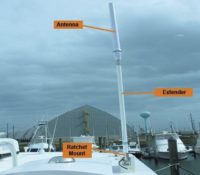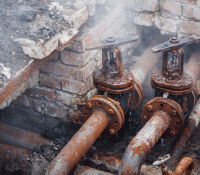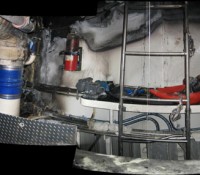Staying Connected on the Loop: Two by Two’s Mobile Internet Setup
After completing the sit-stand workstation in the guest stateroom of our 47’ Nova Scotia pilothouse trawler, Two by Two, that I reported in a previous blog, I found I needed an internet connection with reasonable speed and reliability. While almost every marina will give you a password for their WiFi, the quality of most marina connections is unreliable and too slow to effectively work as a forensic engineering consultant. When I tried to download a simple photograph through any type of remote connection to the Irmo, SC office, I could go make a cup of coffee and come back before the download finished. To upload a group of photographs Read More






